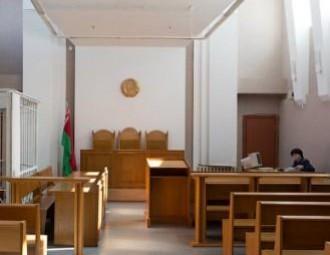Mikhail Matskevich: The practice of closed administrative cases has a long history

Belarusan judges got used to trying administrative cases privately, in their own cabinets.
It was reported to the EuroBelarus Information Service by Mikhail Matskevich, the head of the monitor group in the Legal Transformation Centre “Lawtrend”.
Open administrative cases are, however, not always public, as the court workers do not always announce the information about the time and the cabinet where the case is going to be tried.
Similar breach of order Mikhail Matskevich has brought to the notice of one of the Minsk courts. His appeal got the answer, confirming the submitted complaints. In this regard deputy judge was instructed to hold studies with clerks to the justices.
Mikhail Matskevich noted that it is hard to judge how often such violations of the law are detected. “However, from my own experience I can say that both the clerks to the justices and the judges ignore the rules and do not post up the information about the proceedings. Citizens’ requests who want to know where the proceedings are going on are also ignored”, - told the human rights fighter.
The reasons for such practice are the following: “Court workers haven’t accustomed to the presence of people at the administrative trials; they are not used to observers, who write something down, as it is much more convenient for the judge to hold one-on-one session in his own cabinet. Otherwise, it means they have to change the frame of their work”.
The human right fighter also noted that the issues with openness and publicity of legal proceedings appear when politically motivated cases are tried. “In this case the problem is rather caused by the reluctance of the authorities to disclose true reasons for the prosecution of activists and demonstrate how rapid the cases are tried”, - stated the head of the Lawtrend monitor group.
On the whole, the practice when people are not allowed to be present at politically motivated trials didn’t appear at once, but rather because of the tradition with non-political trials: “If the judge is used to trying all the cases in his own cabinet and gets a political case at some point, he will do everything in the same way, ignoring the norms of the law, just because of the existing practice”.
Justifying themselves, the judges talk about the great pressure of work. According to the Ministry of Justice, in 2012 Belarusan courts have tried 397 117 administrative cases.
“However, no one has abolished the rule saying that all the administrative trials are open, - parried Mikhail Matskevich. – Such cases can be closed only if they deal with state secrets or some details from the private life of the person facing trial. However, the decision about the closed trial should be announced in public. In the long run, no one abrogates the Constitution, which says that all the cases are open”.
Yet the human rights fighter noted that he has never faced the situation when the closed case was tried because it was dealing with state secrets or the private life of the person brought to court.
-
03.01
-
07.10
-
22.09
-
17.08
-
12.08
-
30.09



























